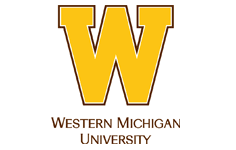ScholarWorks > WMU > Perspectives > Vol. 1 (1969) > No. 3
Abstract
Panel 3 presented at the Association for General and Liberal Studies' Annual Meeting at Colgate University, October 30th through November 1st, 1969.
The challenge for the liberal arts curriculum rests in the willingness of its leaders and teachers to again address the existential condition of which we are a part. We must be far more willing to probe the symbolic nature of men, and society, to unearth the dimensions of man for which students crave. We must address ourselves to the presupposition of a culture which is in many ways diffe rent from our own. Liberal arts education must take as its fundamental task the reunion of the creative dimension of man with his powers of articulation ; to unveil the assumption that fear, anxiety, love and hope are not new, and thereby reveal the eternal, suffering nature of the human condition. To examine man's relation to himself and society is the task of good teaching, for it cultivates awareness. This is the awareness for which students hope.
The liberal arts college itself is in something of the same posture, dedicated, no matter what the catalog says, to a kind of higher vocationalism. And it is too much preoccupied by questions of institutional survival, the hierarchical relationships of faculty to each other, organizational and procedural arrangements. Students know these things. Radical disaffection or noncommittal conformity or rebellious contempt are not all there is to know about students in our colleges today. But they suggest that the undergraduate college in America needs re-examination if we want a more productive relationship between education and questions of man's survival and fulfillment.
Recommended Citation
Pacini, David S. and Smith, Francis D.
(1970)
"The Challenge to Make Undergraduate Curricula Relevant to Students’ Needs,"
Perspectives (1969-1979): Vol. 1:
No.
3, Article 5.
Available at:
https://scholarworks.wmich.edu/perspectives/vol1/iss3/5



